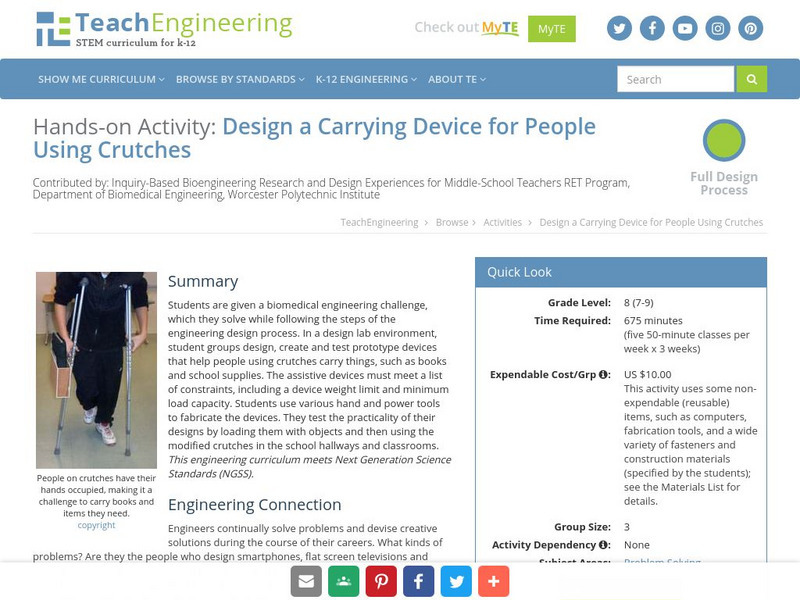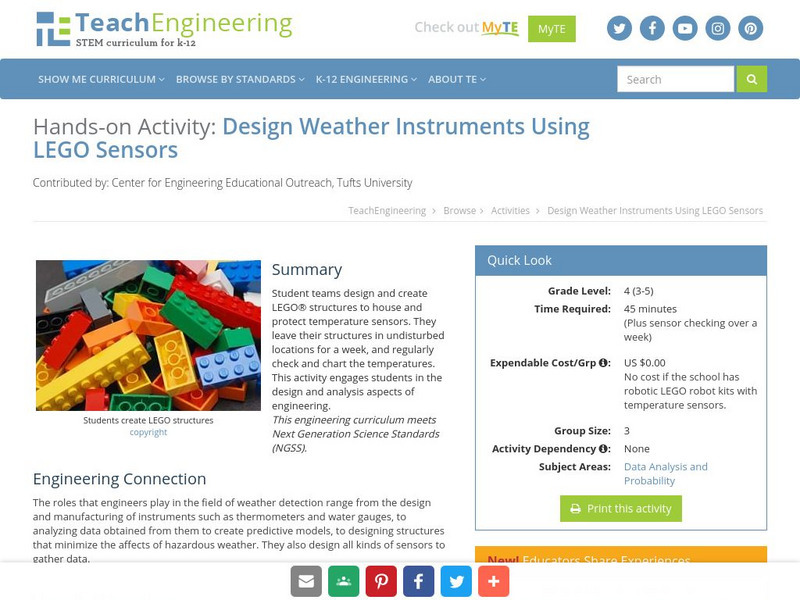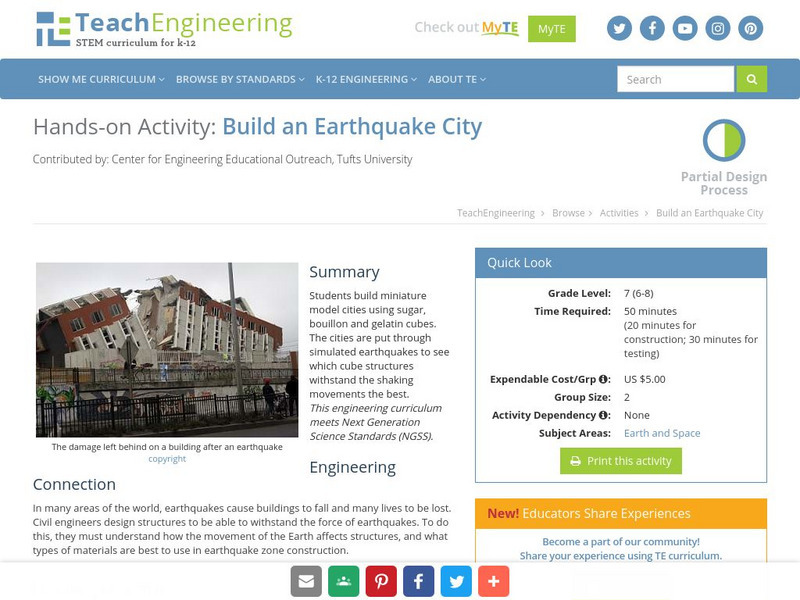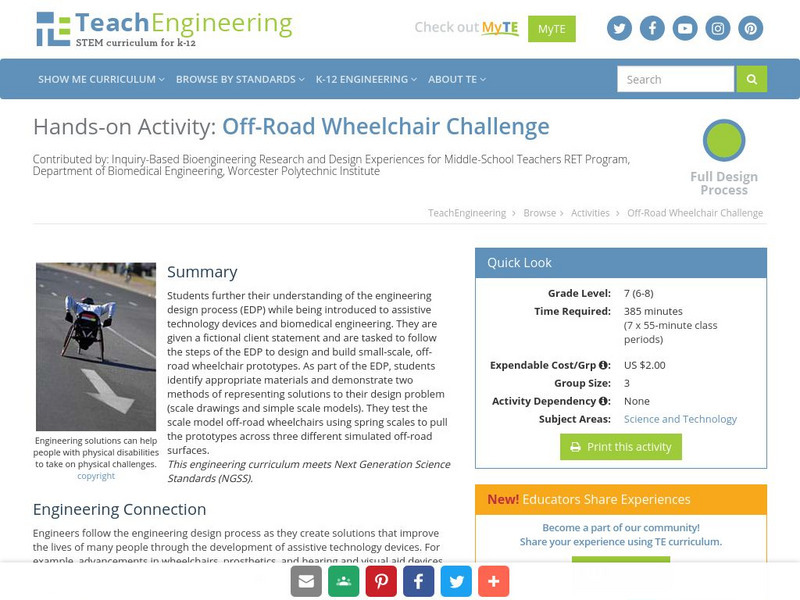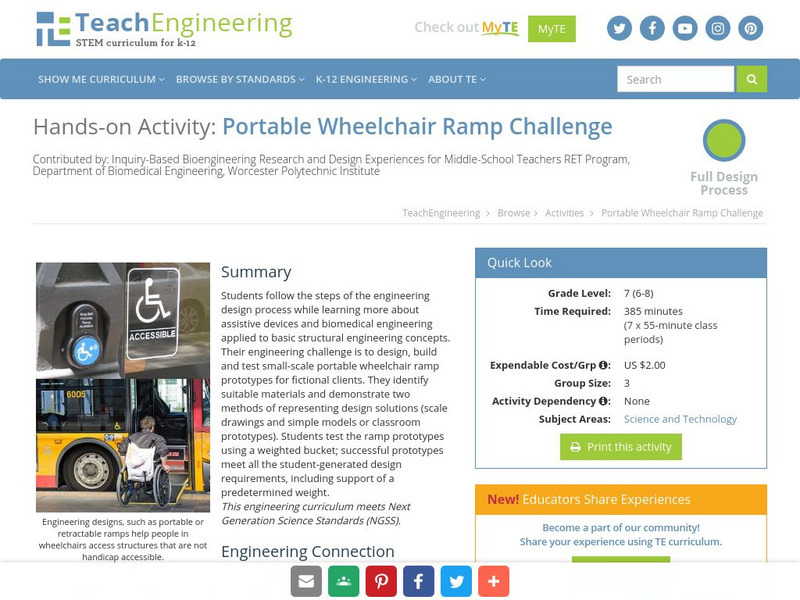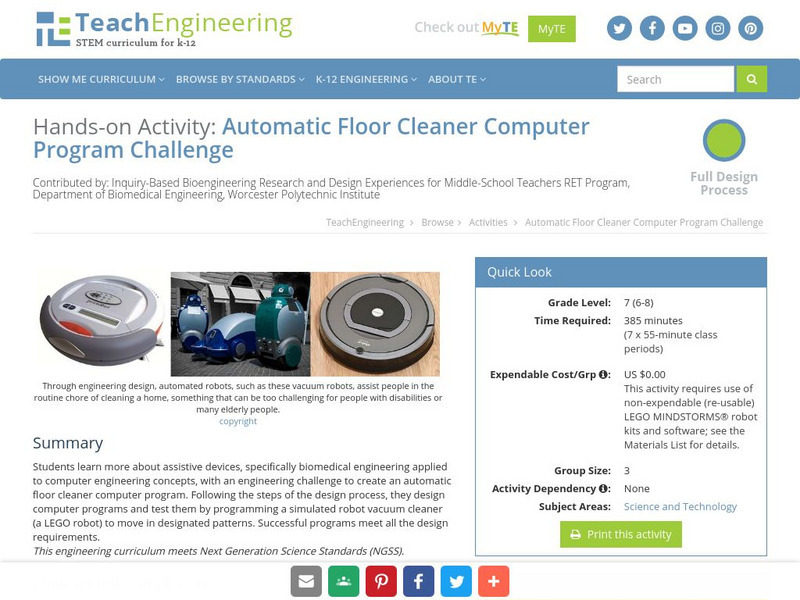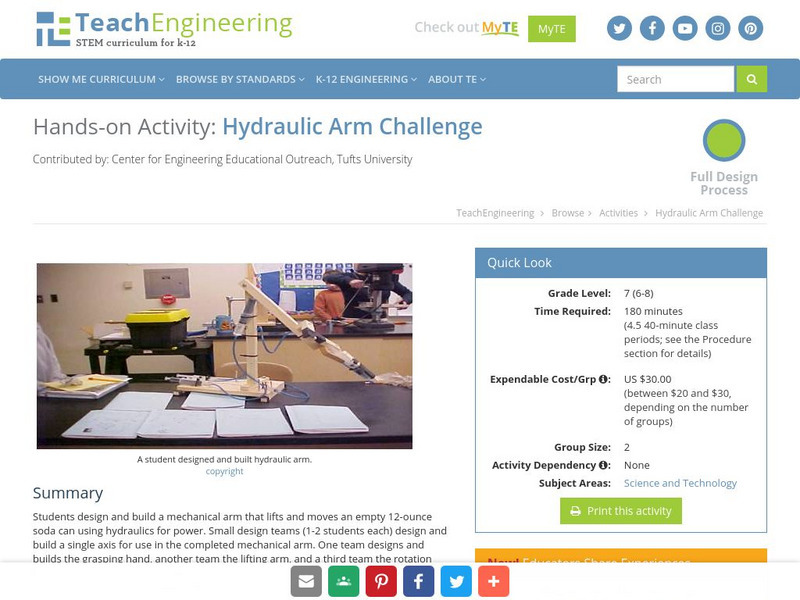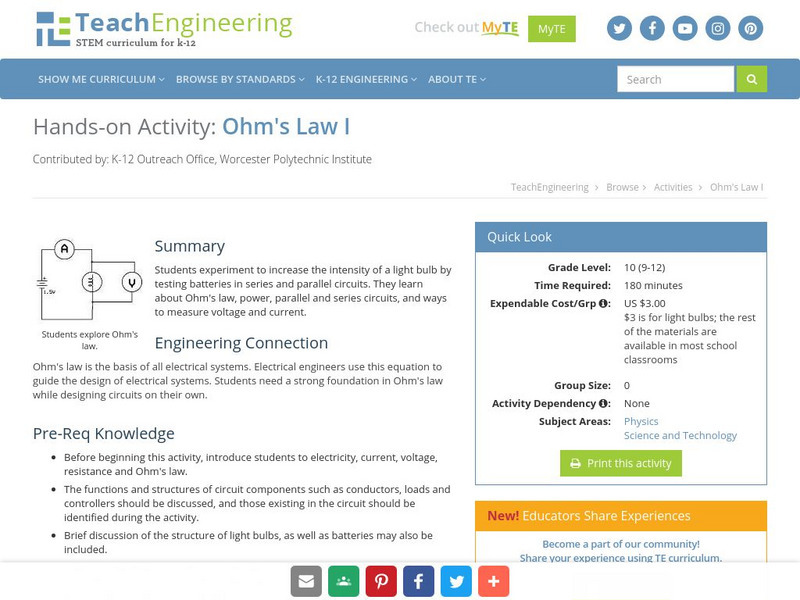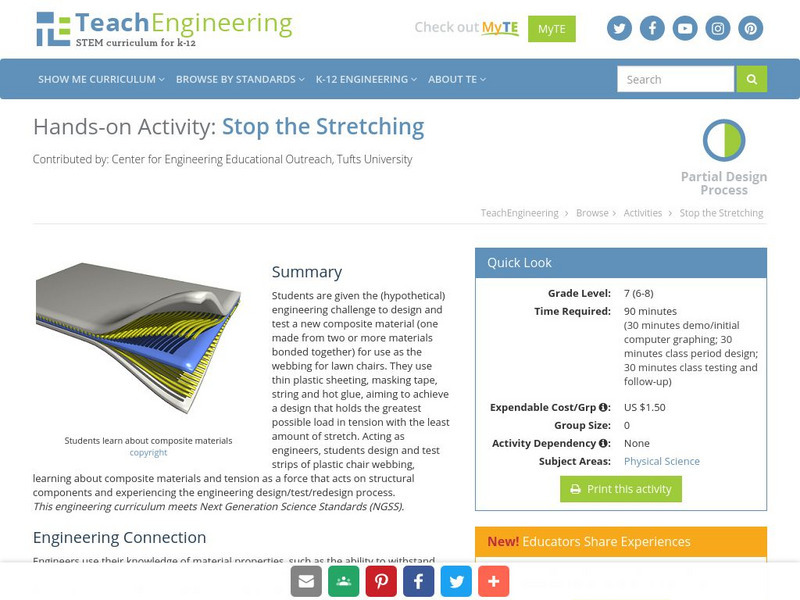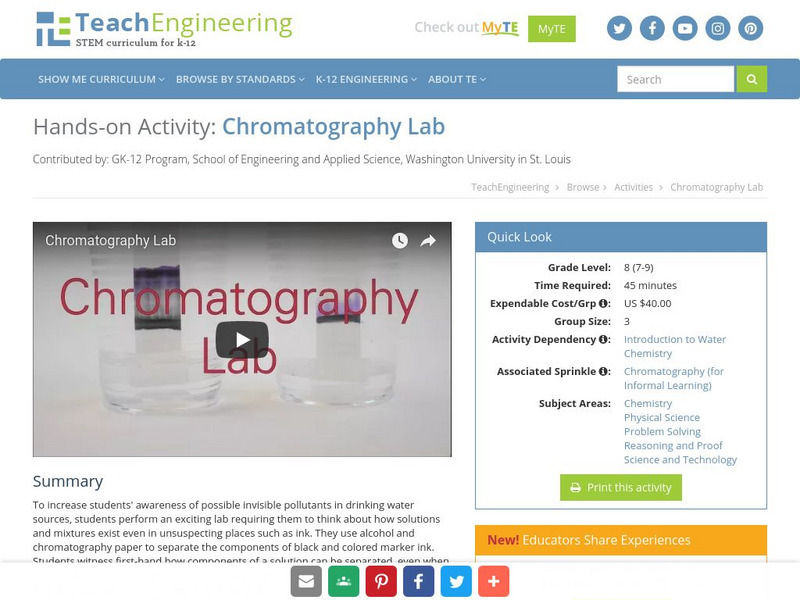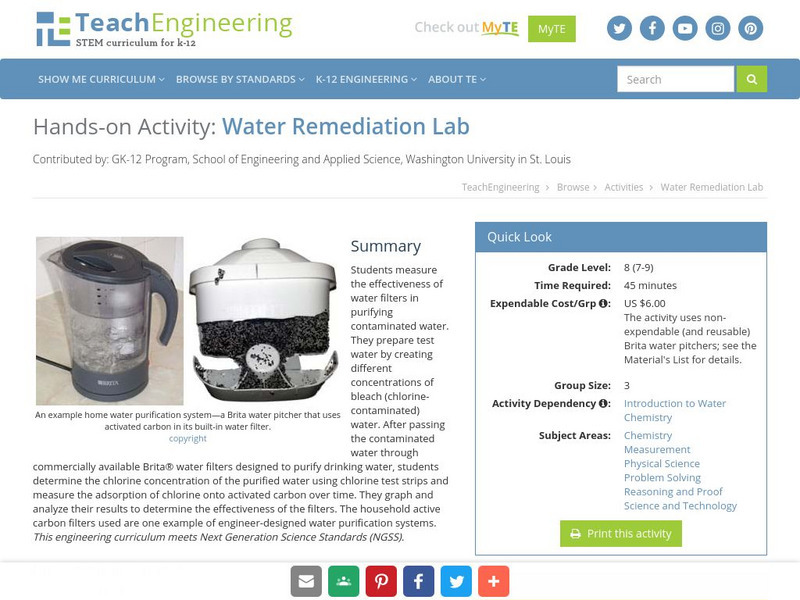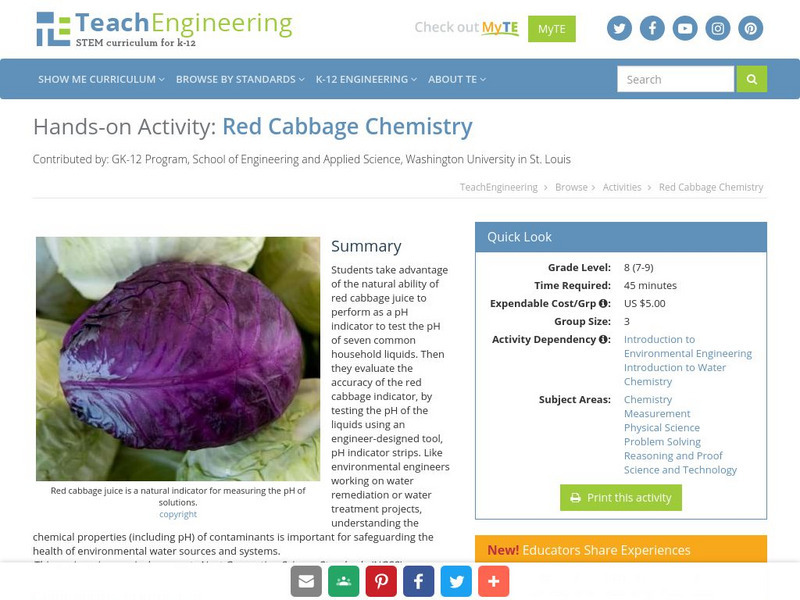TeachEngineering
Teach Engineering: Design a Carrying Device for People Using Crutches
Students are given a biomedical engineering challenge, which they solve while following the steps of the engineering design process. In a design lab environment, student groups design, create, and test prototype devices that help people...
TeachEngineering
Teach Engineering: Designing a Package That Works
The goal is for students to understand the basics of engineering associated with the packaging of items to preserve, market, and safely deliver products. The packaging for each type of use varies. While observing and thinking about all...
TeachEngineering
Teach Engineering: Design Weather Instruments Using Lego Sensors
Students will design and create a LEGO structure that will house and protect a temperature sensor. They will leave the structure in a safe spot and check the temperature regularly and chart it.
TeachEngineering
Teach Engineering: Build an Earthquake City
Students learn about earthquakes and how they effect structures. Student then apply their knowledge by trying to build an earthquake resistant city.
TeachEngineering
Teach Engineering: Super Slinger Engineering Challenge
Students are challenged to design, build and test small-scale launchers while they learn and follow the steps of the engineering design process. For the challenge, the "slingers" must be able to aim and launch Ping-Pong balls 20 feet...
TeachEngineering
Teach Engineering: Off Road Wheelchair Challenge
Students further their understanding of the engineering design process (EDP) while being introduced to assistive technology devices and biomedical engineering. They are given a fictional client statement and are tasked to follow the...
TeachEngineering
Teach Engineering: Portable Wheelchair Ramp Challenge
Students follow the steps of the engineering design process while learning more about assistive devices and biomedical engineering applied to basic structural engineering concepts. Their engineering challenge is to design, build and test...
TeachEngineering
Teach Engineering: Automatic Floor Cleaner Computer Program Challenge
Students learn more about assistive devices, specifically biomedical engineering applied to computer engineering concepts, with an engineering challenge to create an automatic floor cleaner computer program. Following the steps of the...
TeachEngineering
Teach Engineering: Manufacturing Technologies: Making a Picture Frame
The goal of this activity is to demonstrate the basic processes involved in a manufacturing system while producing your own picture frame.
TeachEngineering
Teach Engineering: Hello, Are You Listening?
Students gain a basic understanding of the engineering components behind telecommunications, in particular, the way telephone communication works to link one phone to another for conventional landline and cellular telephones. During this...
TeachEngineering
Teach Engineering: Hydraulic Arm Challenge
Students will design and build a mechanical arm that lifts and moves an empty 12-ounce soda can using hydraulics for power. Small design teams (1-2 students) will design and build a single axis for use in the completed mechanical arm....
TeachEngineering
Teach Engineering: Build Your Own Mobile
Students creatively construct mobiles to balance oddly shaped objects while learning about the concept of the center of mass.
TeachEngineering
Teach Engineering: Ohm's Law I
Students will work to increase the intensity of a light bulb by testing batteries in series and parallel circuits. It analyzes Ohm's Law, power, parallel and series circuits, and ways to measure voltage and current.
TeachEngineering
Teach Engineering: Portable Sundial
In this activity students will investigate the accuracy of sundials and the discrepancy that lies between "real time" and "clock time". They will track the position of the sun over the course of a relatively short period of time as they...
TeachEngineering
Teach Engineering: Rolling Blackouts & Environmental Impact
The goal is for the students to understand the environmental design considerations required when generating electricity. The electric power that we use every day at home and work is generated by a variety of power plants. Power plants...
TeachEngineering
Teach Engineering: Smart Move!
This is a simple activity to visualize a communication system. In order to do this the students encode, decode, transmit, receive, and store messages. They will use a code sheet and flashlight for this process. They will also maintain a...
TeachEngineering
Teach Engineering: Stop the Stretching
Students will learn about composite materials, tension as a force and how they act on structural components through the design and testing of a strip of plastic chair webbing.
TeachEngineering
Teach Engineering: What Is the Best Insulator: Air, Styrofoam, Foil, or Cotton?
That heat flows from hot to cold is an unfortunate truth of life. People have put a lot of effort into stopping this fact, however all they have been able to do is slow the process. Working in groups of three to four, students will...
TeachEngineering
Teach Engineering: Wimpy Radar Antenna
Students will reinforce an antenna tower made from foam insulation, so that it will withstand a 480 N-cm bending moment (torque) and a 280 N-cm twisting moment (torque) with minimal deflection. One class will be used to discuss the...
TeachEngineering
Teach Engineering: Wristwatch Design for the Visually Impaired
Students are given a fictional client statement and required to follow the steps of the engineering design process to design a new wristwatch face for a visually impaired student at their school.
TeachEngineering
Teach Engineering: Chromatography Lab
To increase students' awareness of possible invisible pollutants in drinking water sources, students perform an exciting lab requiring them to think about how solutions and mixtures exist even in unsuspecting places such as ink. They use...
TeachEngineering
Teach Engineering: Water Remediation Lab
Students measure the effectiveness of water filters in purifying contaminated water. They prepare test water by creating different concentrations of bleach (chlorine-contaminated) water. After passing the contaminated water through...
TeachEngineering
Teach Engineering: Red Cabbage Chemistry
Students take advantage of the natural ability of red cabbage juice to perform as a pH indicator to test the pH of seven common household liquids. Then they evaluate the accuracy of the red cabbage indicator, by testing the pH of the...
TeachEngineering
Teach Engineering: Density Column Lab Part 1
In this first part of a two-part lab activity, students use triple balance beams and graduated cylinders to take measurements and calculate the densities of several common, irregularly shaped objects with the purpose to resolve confusion...


